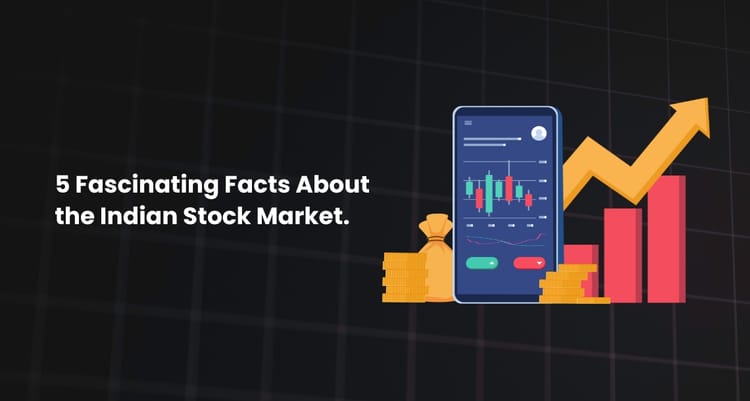India's Digital Revolution: Transforming Lives, One Click at a Time

In a world that's rapidly evolving, India has embraced a digital revolution that's changing the game for millions. Gone are the days when the internet was a luxury; today, it's a lifeline that connects people from Kashmir to Kanyakumari. Let's dive into the fascinating journey of India's digital transformation and explore how it's reshaping lives in the most unexpected ways.
The Smartphone Saga: Connecting India
The advent of affordable smartphones has been a game-changer. Remember those days when owning a mobile phone was a status symbol? Fast forward to today, and you'll find smartphones in the hands of farmers, students, and entrepreneurs alike. The ubiquitous device has become a tool for empowerment, connecting people to the digital world like never before.
Internet for All: Breaking Barriers
India's digital revolution has torn down the walls that once separated urban and rural communities. Thanks to initiatives like Digital India, the internet is no longer a distant dream for those in remote villages. From online education to e-commerce, the internet has become a bridge, connecting aspirations to opportunities.
Digital Payments: The Cashless Conundrum
Remember the days of long queues at banks? Digital payment platforms have changed the way transactions happen. Whether it's paying for groceries or splitting a restaurant bill, digital wallets and UPI have made cashless transactions not just convenient but also safer.
E-Governance: Redefining Citizenship
Say goodbye to bureaucratic red tape! E-governance initiatives have streamlined processes, making it easier for citizens to access essential services. From applying for government schemes to checking land records, a few clicks are all it takes to navigate the maze of paperwork.
Online Education: Learning Beyond Classroom Walls
The COVID-19 pandemic highlighted the importance of online education, but India had already been moving in this direction. EdTech platforms have become a lifeline for students, offering a plethora of courses that go beyond textbooks. Now, anyone with an internet connection can learn from the best teachers in the country.
E-Commerce: Shopping at Your Fingertips
The digital marketplace has transformed the way Indians shop. From traditional handloom products to the latest gadgets, e-commerce platforms have made it possible for businesses of all sizes to reach customers nationwide. The local kirana store might be just around the corner, but the online world has brought the world to your doorstep.
Start-Up Ecosystem: Fueling Entrepreneurship
India's digital revolution isn't just about using technology; it's also about creating it. The start-up ecosystem has exploded, with young minds harnessing the power of digital innovation. From fintech to health tech, these enterprises are not only changing the business landscape but also creating job opportunities for many.
Social Media: Voices Amplified
Social media isn't just for sharing cat videos (though that's still important!). It's a platform for expression, activism, and connecting with like-minded individuals. From farmers sharing their stories to activists rallying support, social media has become a powerful tool for change.
India's digital revolution isn't just about technology; it's about empowerment. It's about breaking down barriers and creating a more inclusive, connected society. As India continues to ride the digital wave, the possibilities are endless, and the journey is bound to be nothing short of extraordinary. So, buckle up, India – the future is just a click away!
Frequently Asked Questions (FAQ)
1. What is the significance of India's digital revolution?
India's digital revolution is transforming the country by making technology accessible to all, breaking down barriers between urban and rural areas, and providing new opportunities for education, commerce, and governance.
2. How have affordable smartphones impacted India?
Affordable smartphones have democratized access to technology, enabling farmers, students, and entrepreneurs to connect to the digital world. This widespread connectivity has empowered individuals and facilitated significant socio-economic changes.
3. What role does the internet play in India's digital transformation?
The internet has become a crucial lifeline, connecting remote and urban areas alike. Initiatives like Digital India have made the internet accessible to millions, providing opportunities for online education, e-commerce, digital payments, and more.
4. How have digital payment platforms changed transactions in India?
Digital payment platforms like UPI and digital wallets have revolutionized transactions by making them cashless, convenient, and secure. This shift has reduced the need for physical cash and made financial transactions more efficient.
5. What is e-governance, and how has it redefined citizenship in India?
E-governance involves using digital tools to streamline government processes. It has made it easier for citizens to access essential services, apply for government schemes, and navigate bureaucratic procedures with just a few clicks.
6. How has online education transformed learning in India?
Online education platforms have expanded access to quality education, allowing students to learn from the best teachers in the country. This shift has been particularly important during the COVID-19 pandemic, ensuring continuity of education.
7. What impact has e-commerce had on shopping habits in India?
E-commerce has revolutionized shopping by bringing a wide range of products to consumers' fingertips. It has enabled businesses of all sizes to reach customers nationwide, promoting convenience and expanding market access.
8. How has India's start-up ecosystem benefited from the digital revolution?
The digital revolution has fueled a thriving start-up ecosystem in India. Young entrepreneurs are leveraging digital innovation to create new business models in sectors like fintech, health tech, and more, generating employment and driving economic growth.
9. What role does social media play in India's digital landscape?
Social media has become a powerful tool for expression, activism, and community building. It allows individuals to share their stories, rally support for causes, and connect with like-minded people, amplifying voices across the country.
10. What are the broader implications of India's digital revolution?
India's digital revolution is creating a more inclusive and connected society. It is breaking down socio-economic barriers, fostering innovation, and providing new opportunities for growth and development, ultimately driving the country towards a brighter future.
11. How can individuals benefit from India's digital transformation?
Individuals can benefit by accessing online education, engaging in digital commerce, using digital payment systems, participating in e-governance, and leveraging social media for personal and professional growth.
12. What future developments can be expected from India's digital revolution?
Future developments may include further advancements in technology, greater internet penetration, enhanced digital infrastructure, and continued growth of the start-up ecosystem. These developments will likely continue to drive socio-economic progress and innovation.
India's digital revolution is reshaping the nation, providing unprecedented opportunities and transforming lives across all sectors. As this journey continues, the potential for growth and innovation remains boundless.






Member discussion